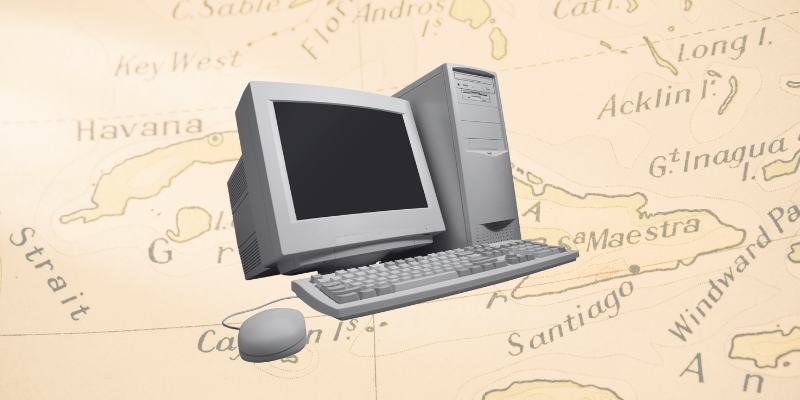Translated by Lily Meyer
Article continues after advertisement
It’s Saturday afternoon, and Rodríguez is drinking rum in his living room, wearing only a pair of shorts. He’s watching a live broadcast of Barcelona playing Real Sociedad with his cousin and a couple of friends. Not far from the television is a wooden table with a bottle of Havana Club 3 Años, some cut-crystal glasses, a can of Coke, a plastic plate of chicharrones and two packs of Popular cigarettes, the ones with filters.
Messi scores for Barcelona. Moments later, the table starts to dance. Rodríguez’s phone is vibrating, shaking the bottle and glasses, though the chicharrones don’t move. He grabs the phone and looks at the screen, and his face changes. He goes onto the balcony and, after a brief conversation, heads directly to his room and emerges in a shirt and trousers.
“Going somewhere?” his cousin asks.
“Work,” Rodríguez says. “Somebody wrote an article online that shit talks Fidel.”
According to Rodríguez, “denigrating the Revolution” can take many forms.
Rodríguez is not his real name. Although he never wears a uniform, he works in a policing capacity in a department at the Ministry of the Interior that he prefers not to identify, though he will say it is “dedicated to monitoring Cuban cyberspace.” He explains further that, “we don’t attack or hack anyone’s site or account. Primarily, we keep an eye on what people say about Cuba online, gauge the consensus, and, if it’s overly negative, we strike back.”
Every day, Rodríguez and his fellow cyber soldiers search and scan the outlets that are most outspoken or “subversive” in their coverage of Cuba, checking a list that includes blogs; foreign media; the underground and opposition press; and people of interest on “insidious” social media platforms. Rodríguez has three Facebook accounts: a real one he uses to keep in touch with friends who’ve emigrated, and two fake ones “for defending Cuba from anyone who denigrates the Revolution.”
Maimir Mesa, Cuba’s Minister of Communication from 2012 to 2018, said in a parliamentary debate that “the online sector should be developed as a weapon in defense of the Revolution, guaranteeing security from risks and threats of all types.” He added, “In order to achieve this, we must implement an action group within the national security system, a task force that can perfect the required process.”
According to Rodríguez, “denigrating the Revolution” can take many forms. It can mean “negative posts about a government measure or project such as urban transit; publicly criticizing a government figure; or writing anything in favor of the United States.” He has two fake Twitter accounts, one on Instagram, and an unused one on Google+. He says that “I’m less active on social media than my subordinates. Most of them maintain several accounts and post constantly. It isn’t only replying. We try to show what Cuba is, our achievements as a nation, and not just wait for somebody to start baiting us.” How many subordinates does he have? He won’t say.
Lázaro Benítez, an official at the Ministry of the Interior, states that “our cyber soldiers are performing one of the country’s most important missions. We can’t allow ourselves to be penetrated on the battleground of the internet.”
In addition to the Ministry of the Interior, nearly every state institution helps police Cuba’s cyberspace, adding online “combat” to their employees’ other roles.
Sonia Cot, a former employee of the People’s Supreme Court, helped found the court’s cyber brigade. “We had a meeting to decide who had the knowledge and political skill to clean up the image of Cuba’s courts and justice system online,” she tells me. Her group selected judges for the mission, then recruited tech-savvy young people to get them online. She says, “we’d write reports on the negative things we found and how we responded. I’d never realized how many lies people tell about Cuba.”
“We’re refuting slander,” Rodríguez tells me, “but also supporting citizens and helping them avoid statements that could be misconstrued. No one wants to show the enemy their belly.”
The same process occurred at the Ministry of Public Health. Ricardo Gálvez, an anesthesiologist at the Hospital Calixto García, says that starting in 2017, “all employees have been informed that the state requests our assistance in resisting the online counterrevolution” He’s talking about a document issued by the Ministry’s director of communications, which was meant to be internal but got leaked to the press. It declared that the “mission of activists and cyber soldiers is to be on the alert for any news spreading on the web that could affect the Revolution.”
Another one of the cyber soldiers’ tasks is to spread positive ideas about the Revolution through online debate. “We’re refuting slander,” Rodríguez tells me, “but also supporting citizens and helping them avoid statements that could be misconstrued. No one wants to show the enemy their belly.” Rodríguez engages in this project mainly through blogs, though of course he doesn’t write under his real name: “Between our forces and the rest of the institutions that lend a hand, we have scores of voices in the blogosphere.”
Although it’s summer in Cuba, Rodríguez is never without a coat. He ties it around his waist or across his torso. Presumably his office is cold. He describes it only as a “computer lab,” adding that “it isn’t the country’s only one.”
Raiko Hernández, a member of Federacion Estudiantil Iniversitaria, or FEU, an organization formed in the 1920s in response to corruption in the Cuban academic system, verifies this. Hernández graduated in 2012 from the University of Informatics Sciences (UIS), founded in 2002 as part of a political campaign Fidel called the “battle of ideas.” Raiko tells me that “our course of study includes trolling. It’s not an assignment so much as a special request from the administration.”
Alina Enteza, also a UIS graduate, has taught there for two years. She explains that “our university is in charge of one of the most important battles of our time. Cyber soldiers are Cuba’s new revolutionaries.” While the UIS’s physical campus is deteriorating, Raiko says that in his five years as a student there, “we had it all: food, computers, nice dorms. We got to play on the internet, and so we did anything we were asked. We had our own laptops, good Wi-Fi, and instructions to post good things about Cuba for an hour every two days, and argue with anyone talking shit. It was supposed to be a military operation, but for us, it was a game.”
UIS has 10,000 students, whose job is to create software and information technology. Learning by doing is paramount. All over campus are computer labs with high-speed connections, but, Raiko says, “we couldn’t go in all of them. Some are just for professors and Party officials. I heard the Ministry of Communication developed its guidelines for cyber policing in one of those labs.”
All that changed, in this case, were the numbers, which the men who rule Cuba got to brag about in their speeches and reports.
Not long before I spoke to Raiko, the legendary singer-songwriter Silvio Rodríguez wrote the following on his Facebook account: “I lost access to the internet yesterday afternoon. Coincidentally, my record label, Ojalá, heard from the Ministry of Communication yesterday that we have been selected for an inspection. We will be hearing from the Integrated Revolutionary Organization. I hope to keep you all informed.” He later added, “My loss of connectivity was due to a broken cable that’s been repaired. As to the inspection and the cyber police, we’ll see…”
Before he became President of Cuba, Miguel Díaz-Canel, then the First Vice President of the Council of State, said in a discussion on technology and the computerization of the country that “the enemies of the Revolution are conspiring to portray Cuba as a country disconnected from the global internet.” It was an old-school declaration, mired in the linguistic muck of rhetoric that is often characteristic of Cuba’s politicians. It was also a denial of the reality: per the United Nations, Cuba—an island of 11.2 million—was, in fact, mainly disconnected. At the time, only 4 million Cubans were able to use the internet, and only 7.1 percent of the population could do so at home. And yet Díaz-Canel maintained that “the nation’s connectivity has grown 346 percent, which proves our advancement on this front, despite many complications.”
He wasn’t fooling anyone. His 346 percent number came from the creation of more than 630 computer labs and 370 public spaces with Wi-Fi—all real, but everyone knew that when you go from having nothing to having some scraps, the data looks impressive, but nobody’s life is transformed. All that changed, in this case, were the numbers, which the men who rule Cuba got to brag about in their speeches and reports.
In a nation where the average reported annual salary is 740 pesos, or $30 a month, and an hour of internet access costs $1, Rodríguez is required to report monthly to his superiors on the online voices and outlets that do most harm to Cuba’s image, as well as the topics his brigades of cyber soldiers promote online. “Our work,” he says,“is to keep #Cuba trending—which it always is—and ensure that the hashtag gets support.” He chooses not to clarify what else is involved in his online battle, in which he uses all the power the state has given him to mercilessly surveil the unwitting people who must count out every cent of their wages to ensure that they have enough to eat, live, and, now, get online.
__________________________________

From The Hidden Island. Used with the permission of the publisher, Ig Publishing. Copyright © 2015 by Abraham Jiménez Enoa.
